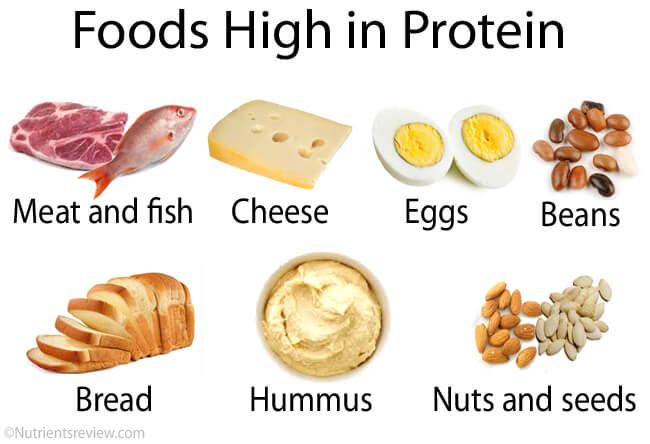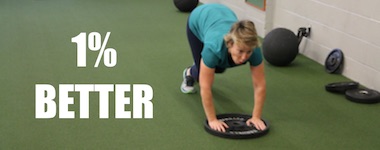When it comes to coaching clients for fat loss, you might hear the word “protein” a few times! One of the foundations for success in the program at Transformation Fitness and Wellness is nutrition. 
We always say, “You cannot out-train improper nutrition.” We work with a lot of our clients on building a better foundation with nutrition and how it can affect personal results in performance and body composition.
One area of nutrition we educate clients with is understanding macronutrients. Macronutrients are those nutrients that the body needs in large amounts. They are carbohydrates, fats, and proteins. The one macronutrient we talk a lot about is protein.
I am sure you might have heard or seen something about protein on a TV commercial or at your local grocery store. It seems that everything has protein in it now; even your sugary, not so healthy breakfast cereal has claims of a protein sighting.
Well, to understand why protein is so important in our daily nutrition, I think it’s a good idea to understand what a protein really is. Now don’t zone out here! This part is important!
Proteins are organic molecules made up of amino acids – the building blocks of life. These amino acids are joined together by chemical bonds and then folded in different ways to create three-dimensional structures that are important to our body’s functioning.
During digestion, the body breaks down the protein we eat into individual amino acids, which contribute to the plasma pool of amino acids. This pool is a storage reserve of amino acids that circulate in the blood.
The amino acid pool in the bloodstream readily trades with the amino acids and proteins in our cells, provides a supply of amino acids as needed, and is continuously replenished.
Since our bodies need proteins and amino acids to produce important molecules in our body – like enzymes, hormones, neurotransmitters, and antibodies – without an adequate protein intake, our bodies can’t function well at all.
Protein helps replace worn out cells, transports various substances throughout the body, and aids in growth and repair.
Protein is a vital nutrient that we need daily to repair, maintain, and build tissues, cells and organs within our body. This is the most basic reason we need it – our bodies can’t function without it!
Beyond that, there are several other reasons why eating protein daily is beneficial, and when it comes to fat loss, protein should be the foundation.
Here is a list of the positive effects of protein:
Increased thermic effect of feeding — While all macronutrients require metabolic processing for digestion, absorption, and storage or oxidation, the thermic effect of protein is roughly double that of carbohydrates and fat. Therefore, eating protein is actually thermogenic and can lead to a higher metabolic rate. This means greater fat loss when dieting and less fat gain during overfeeding/muscle building.
Increased glucagon — Protein consumption increases plasma concentrations of the hormone glucagon. Glucagon is responsible for antagonizing the effects of insulin in adipose tissue, leading to greater fat mobilization. In addition, glucagon also decreases the amounts and activities of the enzymes responsible for making and storing fat in adipose and liver cells. Again, this leads to greater fat loss during dieting and less fat gain during overfeeding.
Metabolic pathway adjustment – When a higher protein (20-50% of intake) is followed, a host of metabolic adjustments occur. These include: a down regulation of glycolysis, a reduction in fatty acid synthesis enzymes, increase in gluconeogenesis, and a carbohydrate “lowering” effect where carbons necessary for ridding the body of amino nitrogen is drawn from glucose.
Increased IGF-1 — Protein and amino-acid supplementation has been shown to increase the IGF-1 response to both exercise and feeding. Since IGF-1 is an anabolic hormone that’s related to muscle growth, another advantage associated with consuming more protein is more muscle growth when overfeeding and/or muscle sparing when dieting.
Reduction in cardiovascular risk — Several studies have shown that increasing the percentage of protein in the diet (from 11% to 23%) while decreasing the percentage of carbohydrate (from 63% to 48%) lowers LDL cholesterol and triglyceride concentrations with concomitant increases in HDL cholesterol concentrations.
Improved weight loss profile —Research by Layman and colleagues has demonstrated that reducing the carbohydrate ratio from 3.5 – 1 to 1.4 – 1 increases body fat loss, spares muscle mass, reduces triglyceride concentrations, improves satiety, and improves blood glucose management (Layman et al 2003 (Journal of Nutrition. Layman has three interesting articles in the two journals).
Increased protein turnover — All tissues of the body, including muscle, go through a regular program of turnover. Since the balance between protein breakdown and protein synthesis governs muscle protein turnover, you need to increase your protein turnover rates in order to best improve your muscle quality. A high protein diet does just this. By increasing both protein synthesis and protein breakdown, a high protein diet helps you get rid of the old muscle more quickly and build up new, more functional muscle to take its place.
Increased nitrogen status — Earlier I indicated that a positive nitrogen status means that more protein is entering the body than is leaving the body. High protein diets cause a strong positive protein status, and when this increased protein availability is coupled with an exercise program that increases the body’s anabolic efficiency, the growth process may be accelerated.
So now that we covered many of the benefits for consuming protein, let’s talk about what happens if we don’t get enough. If you are getting too little protein, you may be suffering from fatigue, a weak immune system, and most likely muscle loss. If you start to experience muscle loss, this will lead to a lower metabolism, which will slow down your fat burning process and puts you at a higher risk for fat gain.
Now that you know about the benefits of protein and how it can help your body burn fat, try to start building your meals around protein. We always tell our clients “Lean and Green.” Get your lean protein option, and then go with a fibrous green carbohydrate. If you are struggling to see results and need more guidance with a plan, request a free consult.
[us_cta title=”Need help with your nutrition?” message=”Call Us (317) 927-9689 or Fill Out Quick Consultation Form” button_target=”” color=”primary” btn_label=”Click Here” btn_color=”light” btn_style=”raised” btn_link=”url:%2Fconsultation”]


